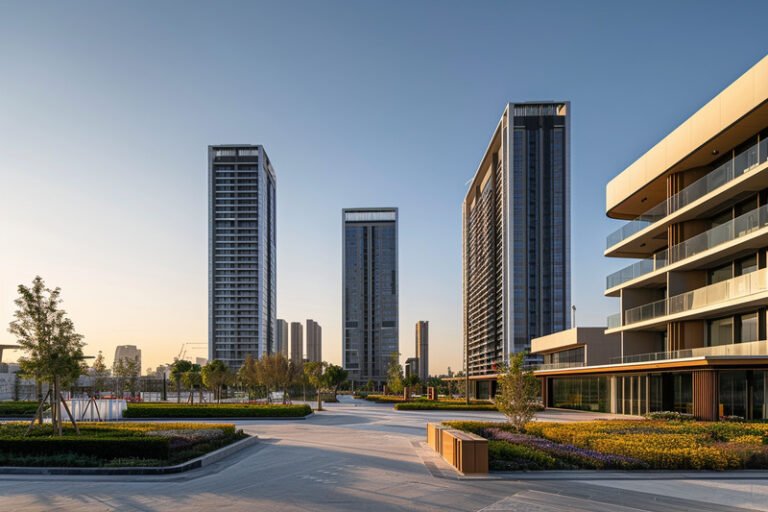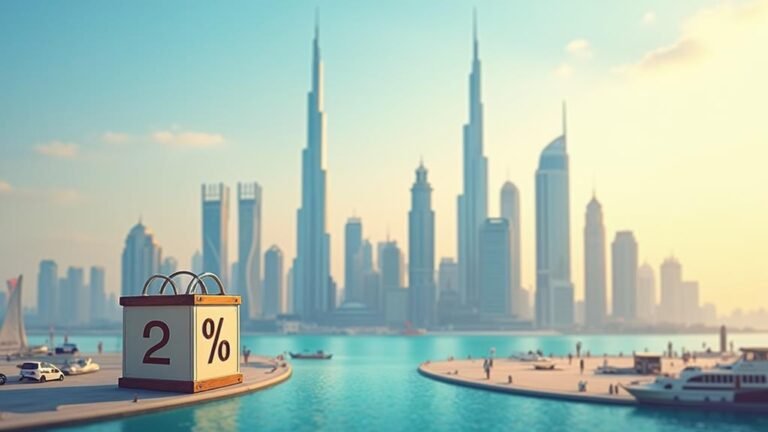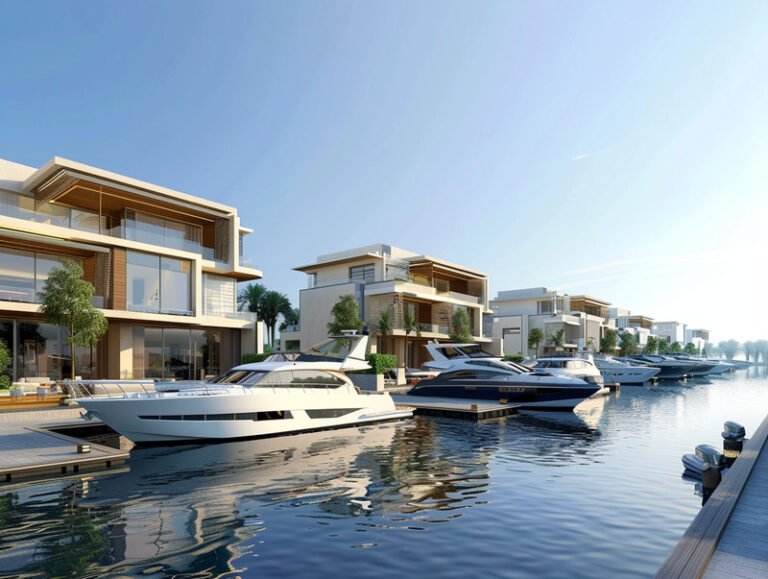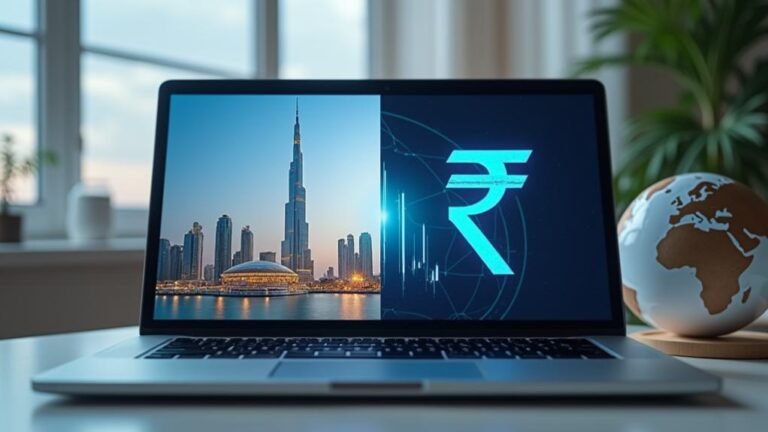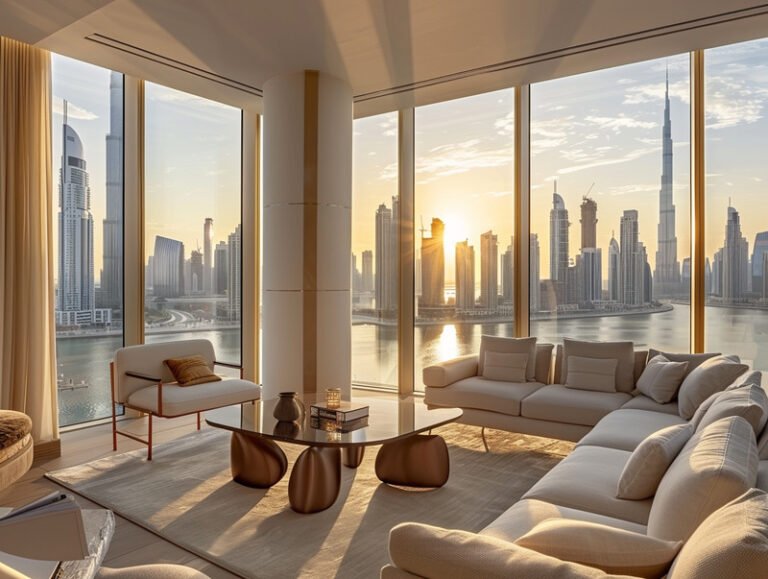Importance of Home Inspections Before Purchase
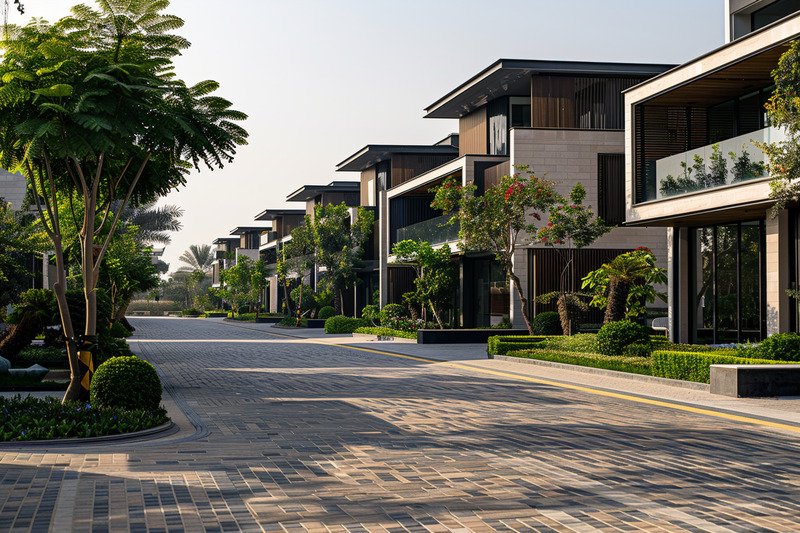
In Dubai's dynamic real estate market, a thorough home inspection is crucial before finalizing any property purchase. While the emirate boasts stunning architectural marvels and luxurious residences, even the most impressive properties may harbor hidden issues. A professional inspection safeguards your investment, ensuring you're aware of any potential problems beneath the surface.
Dubai's unique climate and building practices necessitate specific considerations during inspections. From checking air conditioning systems to assessing the impact of sand and heat on structures, a local expert can provide invaluable insights.
Understanding the intricacies of Dubai's property laws and regulations is equally important. A comprehensive inspection should also verify compliance with local building codes and ensure all necessary permits are in place.
Given the high-value nature of Dubai's real estate, the cost of an inspection is a small price to pay for peace of mind. It can save you from costly repairs and legal complications down the line.
Let us help you find the perfect property. Contact us to get started.
Key Takeaways
In Dubai's dynamic real estate market, home inspections play a crucial role in property transactions. With the city's unique climate and architectural styles, thorough assessments are essential for buyers to make informed decisions. These inspections provide valuable insights into a property's condition, helping identify potential issues specific to Dubai's environment. From evaluating cooling systems to checking for sand-proofing measures, professional inspections offer peace of mind and can significantly impact negotiations.
Home inspections in Dubai reveal critical information about a property's structural integrity, electrical systems, and plumbing. They can uncover issues related to heat insulation, moisture control, and sand penetration – common concerns in the desert climate. Buyers can use these findings to negotiate better prices or request necessary repairs from sellers.
Professional assessments in Dubai often include checks for energy efficiency, especially important given the city's high temperatures. Inspectors evaluate air conditioning systems, window quality, and insulation to ensure optimal comfort and reasonable utility costs. This information is invaluable for buyers planning long-term residence or investment.
Dubai's unique architectural features, such as rooftop pools and elaborate facades, require specialized inspection. Professionals assess these elements for safety, functionality, and compliance with local regulations. This thorough approach helps buyers avoid unexpected maintenance costs and ensure their property meets Dubai's high standards.
Understanding Home Inspection Basics
In Dubai's dynamic real estate market, home inspections are crucial for property buyers. These evaluations provide essential insights into a property's condition before purchase. A qualified professional examines the structure, systems, and components of the property, including foundations, electrical systems, plumbing, and air conditioning.
The inspector assesses both the interior and exterior, checking for any issues specific to Dubai's climate, such as heat insulation and dust protection. They also verify compliance with local building codes and regulations.
After the inspection, you'll receive a comprehensive report detailing the findings. This information is invaluable for making an informed decision about the property. It can help you negotiate repairs, adjust your offer, or reconsider the purchase if significant problems are found.
Home inspections in Dubai aren't pass or fail tests. Instead, they provide a thorough evaluation of the property's current state. By understanding these basics, you'll be better prepared to navigate Dubai's real estate market and protect your investment.
Major Issues Inspectors Look For
In Dubai's real estate market, home inspectors focus on critical issues during property examinations. They assess structural integrity, looking for foundation problems, wall cracks, or uneven floors.
Roof condition is vital, with checks for leaks, damaged materials, and drainage systems. Electrical systems are scrutinized for outdated wiring or fire hazards.
Plumbing inspections involve testing water pressure, checking for leaks, and evaluating pipe conditions. HVAC systems are examined for efficiency and potential replacement needs.
Inspectors also look for water damage, mold growth, and pest infestations, which are particularly relevant in Dubai's climate. Energy efficiency is assessed, including insulation and window quality, which is crucial in the UAE's hot environment.
Inspectors may also check for compliance with local building codes and regulations specific to Dubai. The presence of any issues related to sand or salt exposure, common in coastal areas like Dubai, is also evaluated.
This includes corrosion in metal components or deterioration of building materials due to environmental factors.
Cost Vs. Value of Inspections
Understanding the cost-benefit ratio of home inspections is crucial for potential buyers in Dubai's real estate market. While the upfront expense might give pause, the long-term value these inspections provide is significant.
In Dubai, a detailed home inspection typically costs between AED 1,500 to AED 3,000, depending on the property's size and complexity. This investment can potentially save buyers tens or even hundreds of thousands of dirhams in future repairs and renovations.
A thorough inspection can uncover hidden issues not immediately visible, such as structural problems, faulty wiring, or plumbing defects. These discoveries allow buyers to make informed decisions about the property and can serve as a powerful negotiating tool.
Buyers may be able to request repairs from the seller or negotiate a lower purchase price based on the inspector's findings. This can result in substantial savings or improvements to the property before purchase.
The peace of mind that comes with knowing the true condition of a potential home is invaluable in Dubai's competitive real estate market. By identifying potential hazards or maintenance needs, buyers can better prepare for homeownership and budget accordingly for any necessary work.
In Dubai's unique property landscape, where luxury developments and innovative architectural designs are common, inspections can also reveal any deviations from local building codes or standards. This information is crucial for ensuring compliance and avoiding future legal issues.
Choosing the Right Home Inspector
Selecting a home inspector in Dubai requires careful consideration to ensure you're hiring a qualified professional. In the emirate, inspectors must be accredited by the Dubai Municipality. Look for memberships in international organizations like InterNACHI or ASHI.
Experience is crucial, so inquire about the inspector's background and completed inspections. Request sample reports to assess thoroughness and clarity. Ask for client references and follow up with them. Consider availability and report turnaround time, as these can affect your purchase timeline.
Check for proper licensing and certifications. Experience is vital, so ask about the inspector's background and the number of inspections they've performed. Request sample reports to evaluate their thoroughness and clarity.
Don't hesitate to ask for references from previous clients and follow up with them. Consider the inspector's availability and turnaround time for reports, as these can impact your purchase timeline in Dubai's fast-moving real estate market.
Understand what's included in the inspection fee. Some inspectors may offer additional services like thermal imaging or mold testing, which can be valuable in Dubai's climate. Ensure the inspector carries errors and omissions insurance for your protection.
Negotiating After Inspection Results
In Dubai's competitive real estate market, negotiating after a home inspection is crucial. The process differs slightly from other regions due to local regulations and market dynamics.
Once you receive the inspection report, carefully review it to identify any issues specific to Dubai properties, such as air conditioning systems, water tank conditions, or structural concerns related to the desert climate.
Prioritize major issues that affect safety, structural integrity, or functionality. Focus on concerns unique to Dubai, such as sand-proofing and heat insulation. Address these items first in your discussions with the seller or developer.
Consider requesting repairs for significant issues or asking for a price reduction to cover necessary fixes. Be reasonable in your requests, as minor cosmetic issues typically aren't grounds for renegotiation in Dubai's market.
When presenting your concerns, provide specific details from the inspection report to support your stance. Be prepared for counteroffers and remain flexible throughout the negotiation process.
If the seller is unwilling to address major issues, weigh the costs of potential repairs against the overall value of the property. In some cases, you may decide to walk away from the deal if the problems are too extensive or costly.
Common Home Inspection Misconceptions
Dubai's real estate market has its share of home inspection misconceptions. Many buyers misunderstand the role and limitations of these inspections, potentially leading to costly mistakes. From overestimating the scope of inspections to undervaluing their importance in new properties, these misconceptions can impact purchasing decisions. Understanding the realities of home inspections in Dubai is crucial for making informed real estate investments.
One common misunderstanding is that a home inspection guarantees a perfect property. In reality, inspectors can only report on visible issues and can't predict future problems. This limitation is particularly relevant in Dubai's diverse property market.
Another misconception is that new homes in Dubai don't need inspections. Even newly built properties can have defects, making inspections vital for all purchases, including off-plan properties and recently completed developments.
Many buyers believe that passing a home inspection means the property meets all Dubai Municipality building codes. However, inspectors typically don't perform code compliance checks, which require separate assessments.
It's also a mistake to think that inspectors will provide repair cost estimates or advice on whether to buy the property. Their role is to report findings, not make decisions for you in Dubai's competitive real estate market.
Some buyers assume that all inspectors in Dubai are equally qualified. However, credentials and experience can vary significantly. It's important to research and choose a reputable inspector familiar with local construction practices and regulations.
Conclusion
Home inspections are crucial when buying property in Dubai's dynamic real estate market. They're not just an expense but an investment in your future. By choosing a qualified inspector familiar with Dubai's unique building practices and regulations, you'll gain valuable insights into the property's condition. This knowledge helps you make an informed decision in a city known for its luxurious and innovative developments. The results can be a powerful negotiation tool in Dubai's competitive market.
Don't let common misconceptions about Dubai's high building standards deter you from this essential step. Even in a city known for its state-of-the-art construction, thorough inspections can reveal hidden issues.
A comprehensive inspection can save you from costly surprises in Dubai's premium real estate market. It ensures you're making a sound investment in your new home, whether it's a sleek downtown apartment or a villa in a prestigious community.
In Dubai's unique climate, inspections are particularly important for identifying potential issues with air conditioning systems, water damage, or salt corrosion. These factors can significantly impact your property's value and livability.
Let us help you find the perfect property. Contact us to get started.

